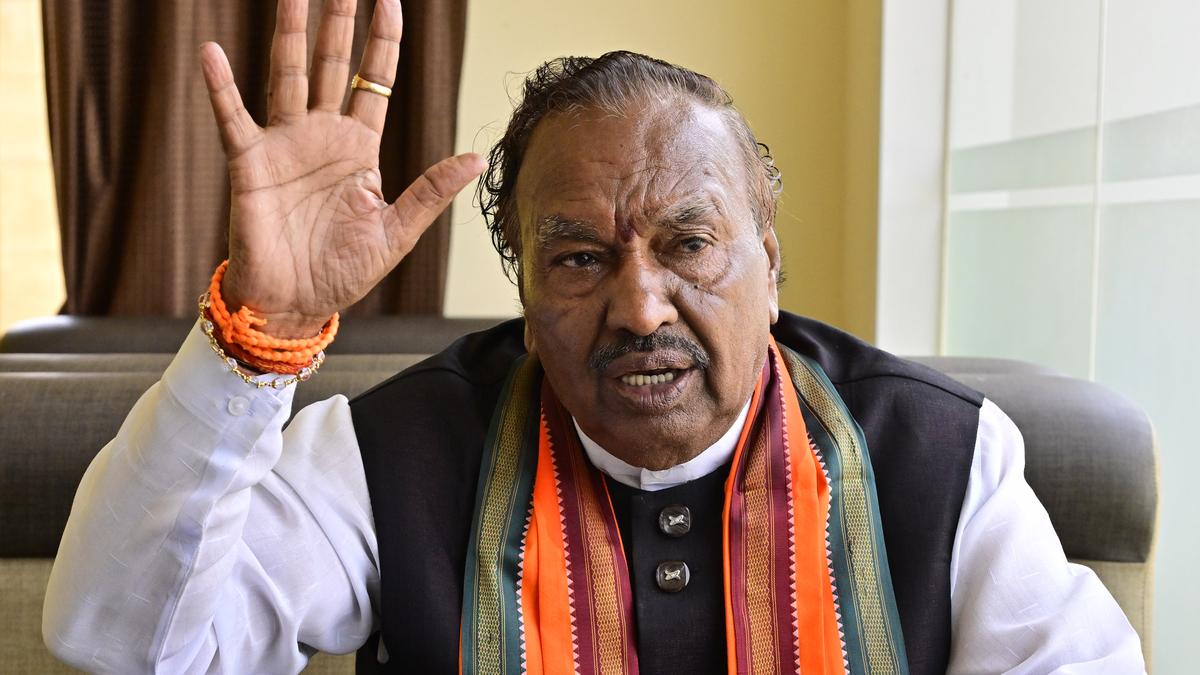The story so far: On March 22, the 13th century Bhojshala-Kamal Maula complex in Madhya Pradesh’s Dhar district became the latest site for a “scientific survey” by the Archaeological Survey of India (ASI). The action followed the Madhya Pradesh High Court ruling which had, on March 11, ordered the ASI to conduct a survey of the premises within six weeks. The complex is contested by Hindus and Muslims as the Vagdevi temple and Kamal Maula Masjid, respectively.
What has the Supreme Court said?
Even as a 15-member ASI team along with the district administration and local police began the survey of the entire complex, the Supreme Court issued a word of caution on April 1. A Bench presided over by Justice Hrishikesh Roy said no physical excavation that would alter the character of the premises should be carried out. The court’s cautionary note followed the mosque’s appeal against the High Court order. The top court also ordered that no further action should be taken on the outcome of the excavation without its permission.

What has been the status quo?
The Bhojshala-Kamal Maula temple-mosque compound has had a truce for the past 20 years. Following an arrangement in 2003, Hindus perform puja here on Tuesday while Muslims perform namaaz on Friday. Despite the occasional hiccup, the system worked fine until recently when a little-known outfit by the name of ‘Hindu Front for Justice’ petitioned the High Court, claiming the complex was a temple built in 1034 and the mosque here was constructed during the reign of Sultanate king, Alauddin Khalji in the 13th century by “destroying and dismantling ancient structures of previously constructed Hindu temples”. Dhar itself has been a city of prominence during the time of the Paramaras, the Marathas and the Delhi Sultanate.
The Muslims, however, claim no existing place of worship was demolished by Maula Kamaluddin Chishti, a sufi, after whom the mosque was named. He was a disciple of Nizamuddin Auliya and is said to have migrated to Dhar in 1291. He preached here for around 40 years. His tomb, built next to the mosque inside the complex here, is frequented by people of both faiths. They claim too that the ASI mentioned the Kamal Maula mosque in its records in 1902, and allege that the controversy began the same year when Kanshi Ram Lele, an education officer, found Sanskrit shlokas written on the floor of the mosque, and concluded it was the mythical Bhojshala.

Have there been surveys before?
A survey was carried out during the British regime by John Malcolm in 1822 who mentioned many legends about Raja Bhoja, including the dams he built, but did not mention any Bhojshala. Malcolm did refer to the current building as a mosque albeit in ruins. He mentioned too a pulpit approached by a flight of stairs. On its floor, Malcolm is said to have found a Hindu inscription, indicating the mosque was built with pre-used material. Whether the pre-used material was of a local place of worship or otherwise, he did not investigate.
In 1935, the Front claims permission was granted by the local king for namaaz for a day. After Independence, the Jan Sangh entered the fray and started a protest for the restoration of the alleged temple. Then, around the time the Babri Masjid-Ramjanambhoomi stir was at its peak, attempts were made to whip up Hindu sentiments and recite Hanuman Chalisa here. The attempts were foiled by the administration. In 1998 a petition was filed in the High Court in 1998 by Vimal Kumar Godha on behalf of the Bajrang Dal and other Hindu bodies. The Kamal Maula mosque continued to be contested by the Hindu outfits in the legal domain. In 2002, around the time of Gujarat pogrom, there was violence around the ownership of the place of worship here as well. The local administration stated the place was “Kamal Maula mosque” and the existence of Bhojshala was a “mystery”. Next year, a truce was arrived at with specific days for worship for both communities. The same words were quoted by the High Court recently while ordering a survey of the place.

 1 week ago
102
1 week ago
102



